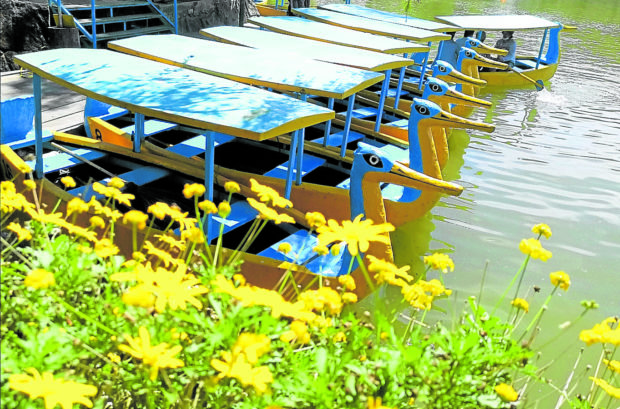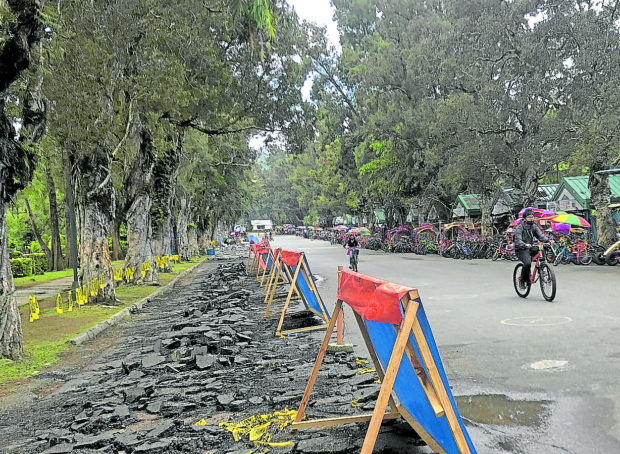In Baguio, rent freeze sought as tourists vanish

BOAT PARKING No one’s rowing these boats in Burnham Lake as travel and health restrictions due to the COVID-19 pandemic have prevented tourists from visiting Baguio City. —EV ESPIRITU
BAGUIO CITY—Only three boats paddled around Burnham Lake before noon on Tuesday as operators approached strangers, inviting them to a P150-boat ride.
“Please, get a boat ride so we can eat,” one of them told a jogger.
Vevian Vicoy, one of the boat concessionaires operating at Burnham Park, said these were signs of their struggles amid the coronavirus pandemic.
“Each day means raising the P350 salary for each of my three employees,” Vicoy told the Inquirer, adding that most of their clients are residents.
Since the pandemic struck, few tourists have visited Burnham because of spikes in COVID-19 infections here and in Metro Manila where most of their clients come from, she said.
Article continues after this advertisementPetition
On Monday, businesses operating at Burnham Park petitioned the city council to enact a rent freeze policy.
Article continues after this advertisement“Without tourists, we can’t even break even [and what we earn each day] is not enough for rentals,” said Steve Cating, whose family had been operating two restaurants at the Burnham Football Grounds for decades.

SLOW DAY Owners of stalls renting out bicycles at Burnham Park say only a few Baguio residents patronize their business while tourists are gone and children are not allowed to go out of their homes due to health concerns. —VINCENT CABREZA
Cating said all 190 enterprises would need “rent abatement” to survive another year of quarantine which has discouraged people from visiting and lingering at the park.
Bicycle concessionaires pay the Baguio government P2,500 a month while boat concessionaires are charged P10,000 for monthly rent, according to a boat ride employee.
The appeal of the Burnham Park businessmen adds to a growing clamor from other business sectors for some form of tax relief.
Earlier this month, the Hotel and Restaurant Association of Baguio asked the council to suspend a new property tax that was enforced this year.
Vice Mayor Faustino Olowan said the council was drawing up an amnesty program for tourism-oriented businesses to resolve their financial difficulties, but it would need a cost-benefit analysis from the city finance committee. The Luzon lockdown and the subsequent quarantine cost the tourism industry at least P1.6 billion in foregone income when leisure travel was stopped for most of 2020.